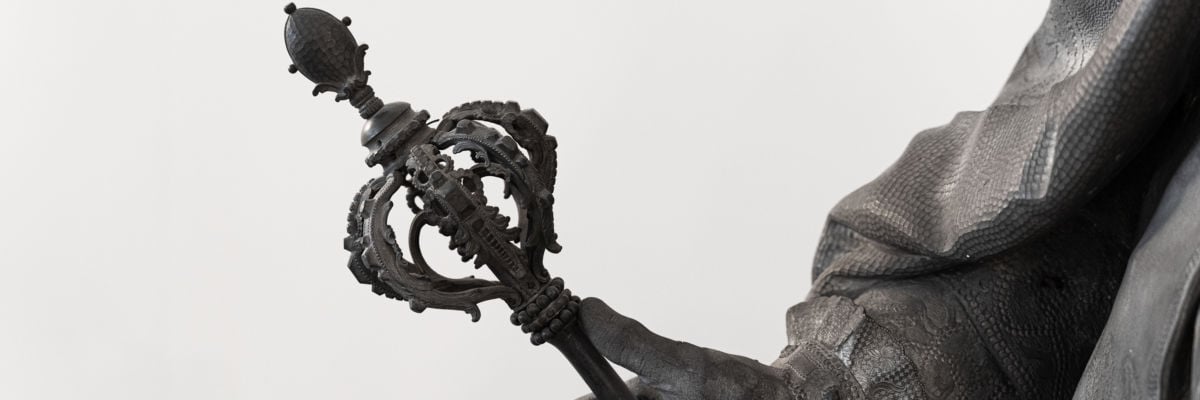
Catholics believe we will be judged based on our works. And there’s no better argument for this belief than one that appeals to Jesus’ teaching about judgment in Matthew 25:31-46, the parable of the sheep and the goats.
The difference between the sheep and the goats is what they did and did not do. Performing the works of charity merits eternal life, and failure to perform works of charity leads to damnation. For a Catholic, it doesn’t get much clearer than this.
But for some Protestants, it’s not so clear. And they have reasons why they don’t agree.
Consider, for example, Protestant scholar Robert Wilkin. He argues that it’s “erroneous” to equate Jesus’ statement, “inherit the kingdom prepared for you,” with “entering it” or “that these people have eternal life.” He interprets Jesus as saying, “They will be rewarded with the privilege of reigning with him forever.” Protestant author Joseph Dillow takes the same line as Wilkin, writing, “‘To inherit the kingdom’ is a virtual synonym for rulership in the kingdom and not entrance into it.”
Since Jesus isn’t talking about entrance into the kingdom, but rather ruling in the kingdom, so it’s argued, the works that the sheep perform don’t play a causal role in their (or our) final salvation.
For our first response, let’s concede for argument’s sake that “inherit the kingdom” is equivalent to “reigning with Christ forever.” By itself, this doesn’t exclude the Catholic view that serving Christ in others is a condition for entrance into the kingdom.
Consider, for example, the contrast Jesus makes between those who “inherit the kingdom” and those who do not. Those who don’t inherit the kingdom depart from Christ “into the eternal fire prepared for the devil and his angels. . . . They will go away into eternal punishment.” “Eternal fire” and “eternal punishment” both convey the nature of the individual’s experience as he departs from Christ.
But it would be ridiculous to think this somehow excludes the idea that the goats don’t ever enter the kingdom because of their failure to practice love in serving Christ in others. Jesus explicitly says, “Depart from me, you cursed, into the eternal fire . . . for I was hungry and you gave me no food.” Jesus’ statements about what the damned will experience also involve exclusion from the kingdom.
Since “eternal fire” and “eternal punishment” involve both what the damned will experience, being separated from Christ, and that they are excluded from the kingdom, and Jesus explicitly contrasts “eternal fire” and “eternal punishment” with “inheriting the kingdom,” it’s reasonable to conclude that “inheriting the kingdom” involves not only what the saved will experience in heaven (e.g., ruling with Christ forever), but also entrance into the kingdom. And since serving Christ in others is a condition for ruling with Christ (assuming that “inheriting the kingdom” refers to ruling with Christ), it follows that serving Christ in others is also a condition of entering the kingdom.
A second response is that the word inheritance implies entering a new state that you didn’t have before. For example, if I were to say to my son, “You will inherit my money when I die,” I would mean that my son would eventually enter a state of possessing my money that he doesn’t have now, before my death. Another example is the Israelites’ inheritance of the promised land. Given that the term inheritance signifies entering a new state, we can interpret Jesus’ statement about Christians “inheriting the kingdom” to mean Christians entering the kingdom of heaven.
A third response is that we have biblical grounds for thinking the phrase “inherit the kingdom” refers to receiving eternal life. First, Jesus explicitly identifies the sheep who “inherit the kingdom” as the “the righteous” who “go . . . into eternal life.” Eternal life here is not to be equated with merely a reward, such as ruling with Christ, since it’s contrasted with “eternal punishment.” Jesus is contrasting two eternal destinies: one for the righteous and the other for the unrighteous.
Moreover, as R.T. France points out, the phrase “eternal life” is already familiar to the reader of Matthew’s Gospel as being equated with being saved or entering the kingdom of heaven. For example, in Matthew 19:16, the rich young man asks Jesus, “What good deed must I do, to have eternal life?” Then, in verses 28-29, Jesus makes clear that the eternal life the rich young man asked about refers to the life the righteous will receive at the Final Judgment: “Truly, I say to you . . . when the Son of Man shall sit on his glorious throne . . . everyone who has left houses or brothers or sisters or father or mother or children or lands, for my name’s sake [what the rich young man didn’t do], will receive a hundredfold, and inherit eternal life.”
Second, Matthew elsewhere in his Gospel records Jesus’ teaching about the kingdom, and it specifies that entrance into the kingdom is conditioned on whether Jesus’ followers perform loving actions. For example, in Matthew 7:21, Jesus is clear that only those who do the will of his Father will “enter the kingdom of heaven.” Doing God’s will is the essence of the theological virtue of charity.
Matthew two chapters earlier records Jesus: “For I tell you, unless your righteousness exceeds that of the scribes and Pharisees, you will never enter the kingdom of heaven” (5:20). Jesus goes on to list a variety of things that make up this righteousness:
- Making amends with someone we’ve offended before we offer our sacrifice.
- Avoiding lust.
- Refusing to divorce or to attempt marriage after divorce.
- Not swearing.
- Turning the other cheek and being generous.
- Loving enemies.
Notice that each item in the above list involves charity. And it’s this charity, manifest in deeds or the avoidance thereof, that is necessary to have the righteousness required to “enter the kingdom of heaven” and be called “sons of your Father who is in heaven” (v. 45). Therefore, charity, and the behaviors associated with it, is a necessary condition for entrance into the kingdom.
Given this context of Matthew’s Gospel concerning entrance into the kingdom and its relation to charity, as shown both in Matthew 5:20-47 and Matthew 7:21, it makes sense to think that when Jesus speaks of “inheriting the kingdom” based on charitable actions in Matthew 25, he has in mind the same teaching he gave concerning entrance into the kingdom based on charity in Matthew 5 and 7.
In sum, this Protestant counterargument fails on multiple grounds. It doesn’t jibe with Jesus’ teaching on the kingdom and its relation to charity elsewhere in Matthew’s Gospel. Nor does it succeed even if we grant for argument’s sake that “inherit the kingdom” refers to ruling with Christ. As such, this comeback shouldn’t cause a Catholic to stop using Matthew 25:31-46 for biblical support of the belief that works play an essential role in entering heaven.



